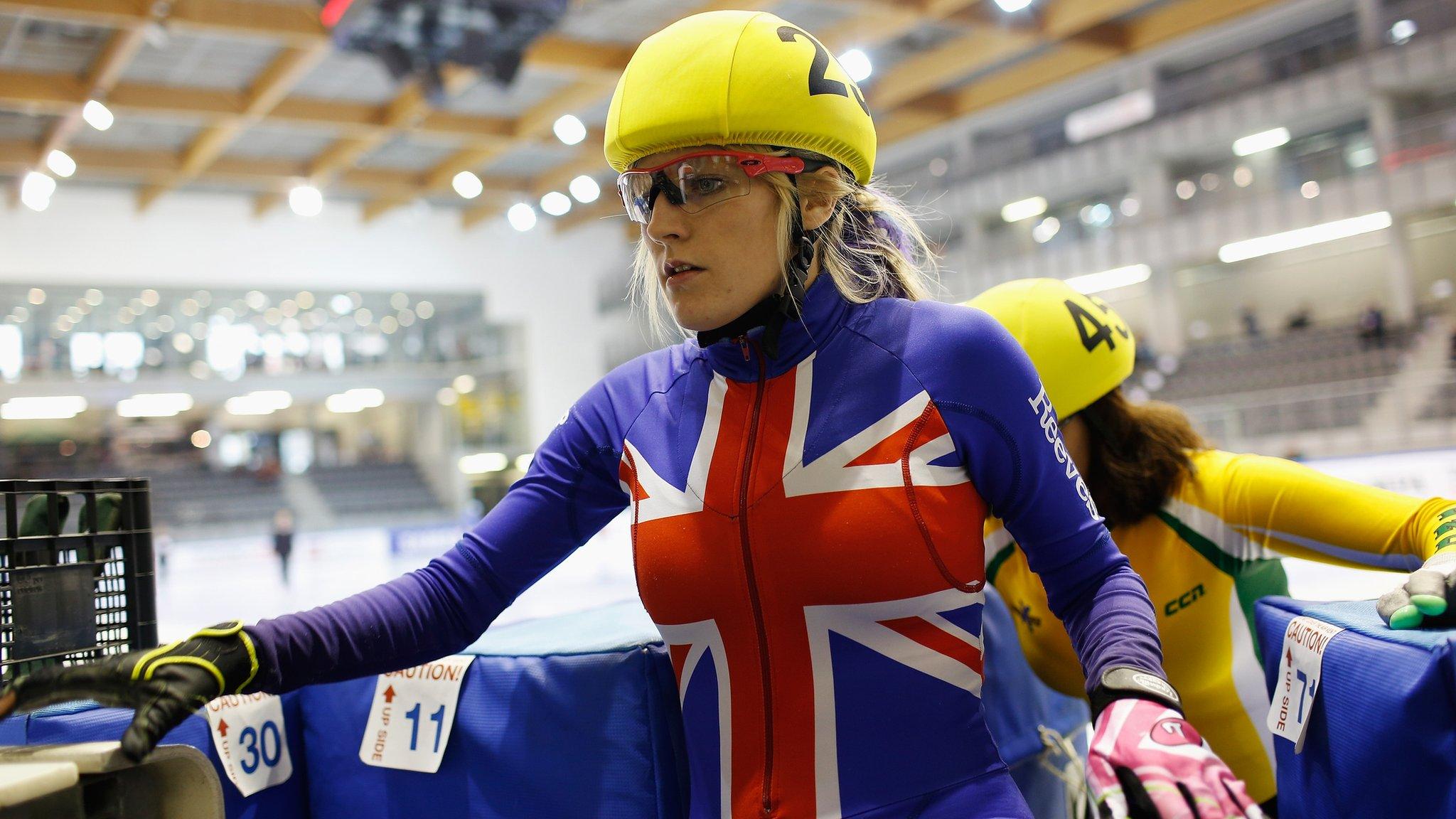Sochi 2014: How GB's freestyle skiers became Olympic contenders
- Published
Visiting the site of where he first hit the slopes, Woods took the rare opportunity to catch up with some old friends and share his ambitions for the Winter Olympic Games in Sochi 2014.
If unconventionality was an Olympic sport, Great Britain's freestyle skiers would be right in the mix for a medal in Sochi. In truth, they may be anyway.
Britain's "Fridge Kids", as head coach Pat Sharples calls them, learned their trade not in some idyllic Alpine setting but on the mats, bristles and artificial snow of the UK's dry slopes and indoor artificial snow domes.
But they are not there for a free tracksuit. James Woods, 21, last year's overall World Cup slopestyle champion, has a genuine medal chance, while women's slopestyler Katie Summerhayes, 18, has scored a World Cup silver.
And women's halfpipe skier Rowan Cheshire, 18, grabbed a World Cup gold earlier this month.
But how did a nation with no freestyle pedigree to speak of suddenly become Olympic medal contenders? The journey is as convoluted as a triple cork 1440.
"Everything started about 10 years ago, way before we could possibly imagine our sport would be in the Olympics," said Sharples, who began his own Olympic journey by escaping Bradford and sleeping rough in a French ski resort aged 16.
Skiers have been pulling fancy tricks since the year dot, but modern freestyle skiing - including slopestyle and halfpipe, and featuring huge airs, inverted spins, grabs and rail riding - was a reaction to the explosion of snowboarding in the late 1990s and early 2000s.
Inspired by the boarding moves and their culture, the rise of terrain parks and twin-tip skis, "new school" skiers pushed at the sport's traditional boundaries. Skiing's stuffy image, away from the extreme scene popularised by ski movie icons such as Scot Schmidt and Glen Plake, got a drastic overhaul.
While Alpine racing, and even other freestyle disciplines such as moguls and now ski cross, required time and therefore money to train on snow, the basics of "new school" skiing could be picked up closer to home.
In the UK, kids took to the dry slopes, perfecting their moves on jumps, rails and boxes. Sheffield Ski Village, with its artificial half pipe, was the epicentre for Woods and his mates as they tried to emulate the fledgling stars of the Winter X Games, the annual extreme sports jamboree in the US.
"Freestyle skiing was cool, it looked cool and had a lot of moves in common with skateboarding, inline skating and other street sports," said Switzerland-based ski coach Warren Smith, who was recently mentoring celebrities on Channel 4's The Jump.
"It really worked for people. They were wearing baggy clothes, sort of a gangster get-up for skiing. It was like an 'urban skiing' style. You could almost do it anywhere, on a rail on a street corner, and people like 'Woodsy' embraced that. They wouldn't have embraced mogul skiing in the same way."
The short slopes and lifts of the dry slopes meant lap times were quick, giving plenty of practice.

Some Team GB members trained on the mats, bristles and artificial snow of the UK's dry slopes and snow domes
"I don't think anyone realised quite how good some of our kids were becoming on all these features, especially some of the jumps," said Sharples, 36. "They were not big but you could do the basics and a lot of set-up tricks ready to do bigger tricks on snow. But it was all about the X Games. That was the holy grail."
Little did they know, as they "corked", "grabbed" and "muted" across the UK's skies, how the stars were aligning. Freestyle skiing was first introduced as a demonstration event in the 1988 Olympics and in Vancouver 2010 consisted of moguls, aerials and ski cross.
But spurred on by the success of ski and snowboard cross and snowboard halfpipe, and in its ongoing bid to keep the Games fresh and inspirational to youth, the International Olympic Committee agreed in 2011 to include ski and snowboard slopestyle and ski halfpipe into the Sochi Games.
Fortunately, Sharples' own incongruous journey meant he had a team of talented young Britons virtually ready to go.
Sharples, who got the ski bug aged seven, grew up on dry slopes in the north of England and gravitated to the Great Britain children's team. But lacking funds to continue training, he quit school at 16 and set off for the mountains on his own.
"I got job as ski tech in a little French resort called Champagny, but I got sacked within a few days because I didn't speak any French and I was supposed to be 18 but I was 16 and looked about 13," he said.
"I hitch-hiked to Courchevel because it was the closest big resort, but I had nowhere to live.
"I lived at the top of the escalator outside the lift ticket office in Courchevel 1650 for a bit and then found out there was a lounge under Rocky's Bar so I sneaked in there because it was much nicer.
"The hotel guests and staff felt sorry for me and brought me food, and I was good at playing up to their sympathy. Then they gave me a job as a general chalet helper, with a bit of washing up, fixing skis and ski guiding. I landed on my feet big time - I was very lucky. I ended up staying for five years.
Woods wins first British freestyle skiing medal
"I was a drop-out at school with no qualifications, but it was my university and I learned a lot about the ski industry."
Sharples made a name for himself on the mogul and early freestyle scene around the Alps, and targeted a GB moguls spot for the 1998 Winter Olympics in Nagano, Japan - the competition that made a superstar of US gold medallist Jonny Moseley - but blew out his knee beforehand.
"I had no coach and certainly didn't have any backing, and I was living the life of a seasonnaire," he said. "I didn't have anyone to mentor me so I was basically partying and skiing the back country instead of training moguls, just living life very loose. I guess I've learnt as a coach now I can use a lot of that and know how not to do it. I know what you need to compete at that level."
Determined to stay in the sport, Sharples teamed up with Londoner Smith to set up the British Freeski Camps, a series of freestyle training weeks in the Alps, and followed these with the UK-based "Grom Camps".
"We both come from very much a council house background, and we've always been pushing at the boundaries of skiing as being a non-elitist sport," said Smith.
Sharples, who also went for interviews to be a Blue Peter presenter, then landed a job as UK team manager for Salomon and Oakley and a 12-year-old Woods was his first signing.
It was at the British Championships in Laax, in Switzerland, where Sharples first met the effervescent young Woods, a skateboarder, roller blader and dry slope skier, who was about to compete on snow for the first time.
"The first thing that struck me was his amazing personality," said Sharples. "He was very bubbly. I watched him ski and his style was really unique, I'd not seen anybody like that before. He was still doing basic stuff because he had only skied on a dry slope. But straight away I realised he was someone I could work with and mentor and was my first signing on the team."
Others followed, including a nine-year-old Summerhayes, also from Sheffield.
"Within a few weeks I knew she was something special and she has been working alongside me ever since," added Sharples. "Where she has come in that time has been absolutely amazing."
When slopestyle and halfpipe were added to the Winter Games, Sharples, or "Uncle Sharpy" as his athletes call him, was a natural choice as head coach.
"He is a non-stop motivational guy," said Smith. "It's that determination, the big smile, the positive chat on the worst of the worst days. I even have to do a double-take sometimes. Where Pat excels is the personal side. He knows when they are tired or need an emotional pick-up. He's their second parent, effectively."
Sharples says a medal for one of the British freestyle skiers or snowboarders - Billy Morgan is rated another big chance in snowboard slopestyle - is "very achievable" but admits any one of "10 Usain Bolts" could win on the day.
But if the Fridge Kids do manage to get among the chocolates, it will be a triumph of spirit over structure. Much like freestyle.
- Published21 January 2014
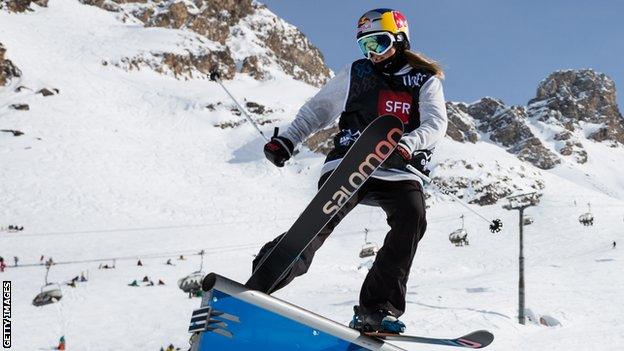
- Published19 July 2013
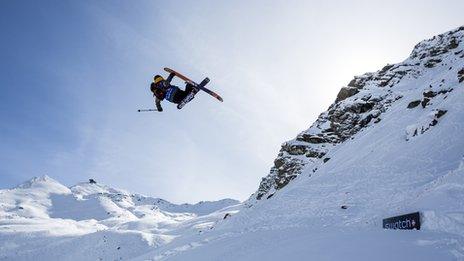
- Published31 January 2014
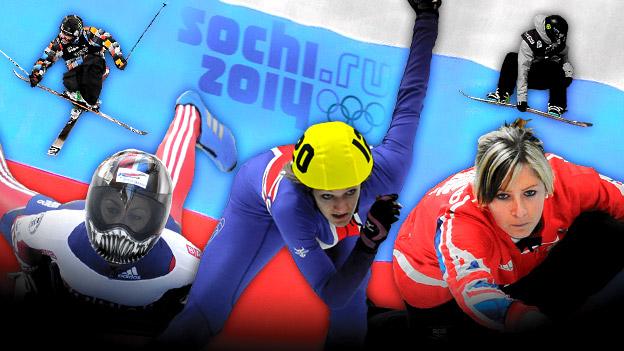
- Published10 January 2014
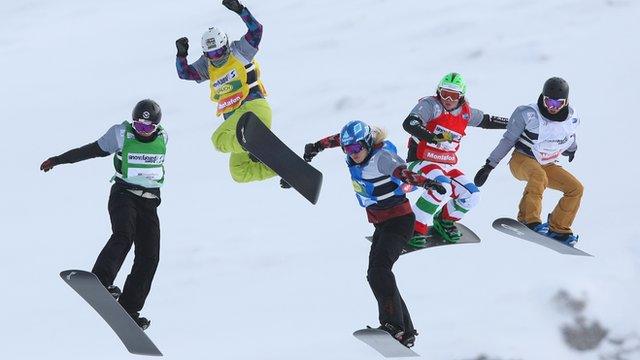
- Published17 February 2014
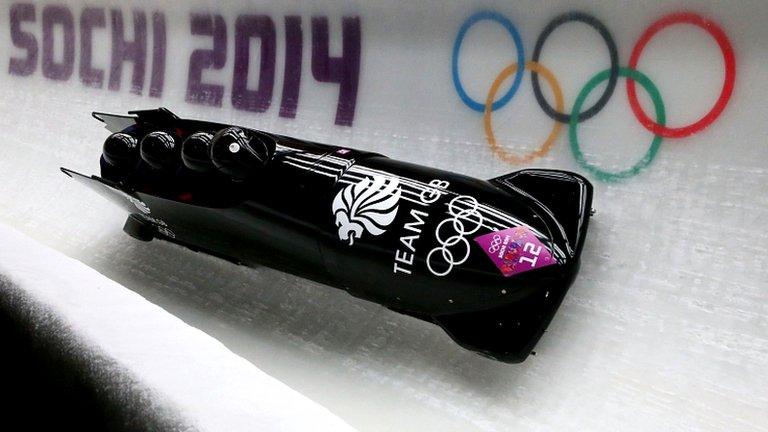
- Published22 January 2014
